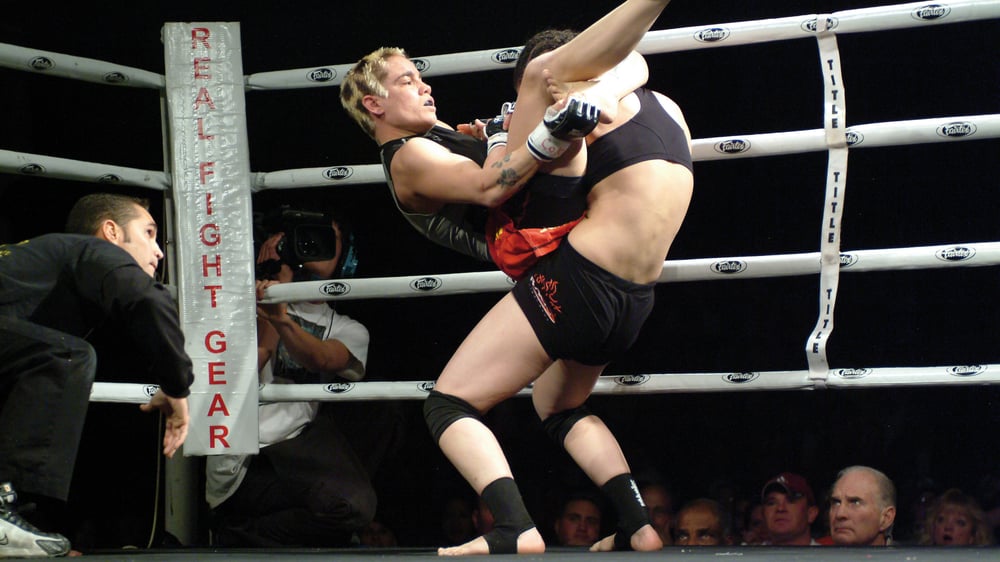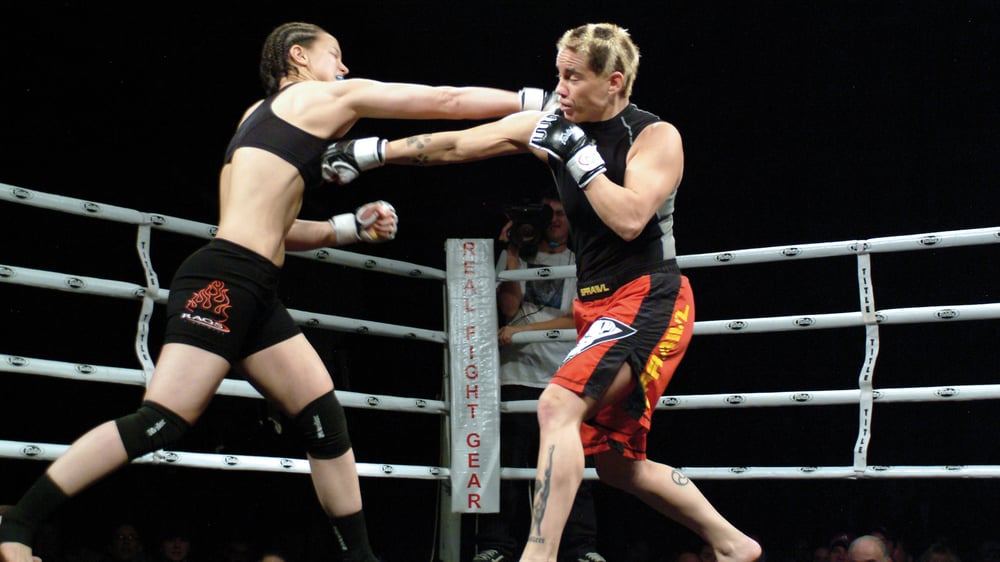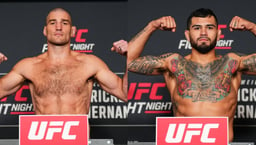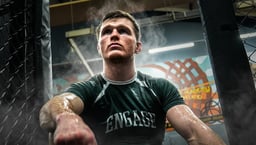
Issue 012
April 2006
Amanda Buckner is widely regarded as one of the top female MMA fighters in the US. A seasoned veteran of various promotions, she is the IFC Women's Middleweight (135lbs) US Champion and she recently defeated the highly rated Megumi Yabushita by submission for the SmackGirl Open Weight title.
Dynamic and aggressive, 31-year-old Amanda (7-3-1 and fighting out of the Academy of MMA in Portland, Maine in the US) has been described by her fellow fighters as a “grappling terror” and the kind of fighter who “doesn’t back down”. With strong wrestling and jiu-jitsu skills, Amanda is an explosive fighter who uses quick footwork and is always willing to trade strikes.
What was your athletic background before starting MMA?
My background was basketball. I was involved in athletics my whole life but had never done any martial arts. I started taking BJJ and pretty much decided right away that I was going to fight so I started learning wrestling and Thai boxing. It was a bit of a challenge to try and learn everything at once but I guess it was also good because I didn't have any bad habits to break.
What made you decide to get into MMA, which is primarily a male-dominated sport?
When I started taking BJJ my husband (who wasn't my husband at the time) was training for a fight. I saw him go through that process and learned more about the sport. When I saw his fight I knew right away that I wanted to try it. I didn't even give much thought to the gender aspect at the time, it just looked like an amazing challenge and I really felt like the process of learning the skills, training for a fight and going through with it would be a life changing experience.
Did you face any particular challenges, whether that was a lack of understanding from family or friends, or even blatant discrimination?
I've been pretty fortunate in this area I think. My family has normal parental concerns whenever I fight but their desire to support me outweighs their fear. My mom especially has gotten pretty into the sport and really enjoys watching fights. Probably the worst experiences I've had have been from people that come to watch the fights and this has mostly consisted of rude comments. It could definitely be a lot worse.

You started in small shows and moved into bigger ones like IFC and even SmackGirl. What were your early experiences of fighting like?
The beginning of my career was interesting. My first fight was at a really small show, my next fight was on the Ultimate Athlete event, which was a much larger show, and I think I was on second to last. My third fight was Jennifer Howe at a tiny show in Utah. It seemed like every experience was completely different. I fought some tough people right away and though it was hard at the time I think that is what has shaped me into the fighter I am today.
Contrasting your experiences of fighting in the US and in Japan, what were the main differences that stood out for you?
The main difference by far is the atmosphere at the event. There is so much more respect for the sport and for the fighters (in Japan). It's so nice to fight in front of a crowd that appreciates the ground game as well as the stand up, to not hear any booing, and to not hear people screaming to see someone’s head ripped off. My corner can talk to me in a normal speaking voice and I can hear everything he's saying. It's really great.
How did you deal with the cultural differences posed by being an American in Japan?
Not very well on some accounts, mostly with language stuff. Jay (my husband and coach) knows a little Japanese, which came in really handy. But we're both vegetarians and it was pretty much impossible for us to find food there. I ended up eating mostly these rice balls from a 24-hour store near our hotel.
Tell us about your best fight-related memory?
The best memory I have of a fight is my first fight in Japan. The whole trip was so great and I was able to submit a good opponent who they had planned on me losing to. I couldn't have asked for a better experience.
What kind of reactions do you get when you tell people you are a fighter?
I get everything from awe to disbelief to shock. Because I have a bit of an alternative look I don't think people are quite as surprised as I'm sure they are with some of the other girls that fight.

You began fighting a few years ago now. How do you think Women's MMA
has progressed in that time?
When I first started I really thought Women's MMA was at a period where it was really going to explode. I don't really feel like that happened. I think the skill level of the women fighting has increased but I thought the numbers would be a lot higher by now. I wish there were more women highly skilled women fighting. If you are a woman fighting and are fairly active you can pretty much run out of people to fight which is kind of sad. I'm hoping more women get interested.
What are your goals for the future, both in and out of the ring?
In the ring I would like to fight in one of the big shows, Pride or the UFC. I'm really hoping one or both of them will have a women’s match before I retire. I think the top women have earned that shot. Outside of the ring I plan on really pursuing photography once I'm done fighting. That's something I've put on hold to compete. And of course the gym succeeding is a big goal. Once the gym is doing well Jay and I plan on starting a pit bull rescue/education program.
And is there anyone in particular who has helped you get where you are?
I need to thank Sprawl, they make great shorts and have been very supportive. My team at the Academy is a great group that is really dedicated to each other. Above all I need to thank Jay Jack, my coach and husband. He's with me every step of the way and is an amazing coach (and an ok husband!)
...









